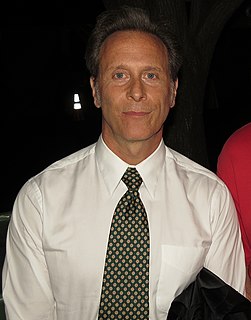A Quote by Seth Shostak
By 2020, most home computers will have the computing power of a human brain. That doesn't mean that they are brains, but it means that in terms of raw processing, they can process bits as fast as a brain can. So the question is, how far behind that is the development of a machine that's as smart as we are?
Related Quotes
Psychologism holds that logical assertions are percolations of brains. Thus logic is a set of rules for how healthy brains operate. Aside from the infinite regress of a brain determining whether a brain is healthy, we have the infinite regress of the idea 'All concepts are brain percolations' being itself a brain percolation, on its own terms.
The human brain became large by natural selection (who knows why, but presumably for good cause). Yet surely most "things" now done by our brains, and essential both to our cultures and to our very survival, are epiphenomena of the computing power of this machine, not genetically grounded Darwinian entities created specifically by natural selection for their current function.
Most of our brain cells are glial cells, once thought to be mere support cells, but now understood as having a critical role in brain function. Glial cells in the human brain are markedly different from glial cells in other brains, suggesting that they may be important in the evolution of brain function.
Meaning and value depend on human mind space and the commitment of time and energy by very smart people to a creative enterprise. And the time, energy, and brain power of smart, creative people are not abundant. These are the things that are scare, and in some sense they become scarcer as the demand for these talents increases in proportion to the amount of abundant computing power available.
Man is not a machine, ... although man most certainly processes information, he does not necessarily process it in the way computers do. Computers and men are not species of the same genus. .... No other organism, and certainly no computer, can be made to confront genuine human problems in human terms. ... However much intelligence computers may attain, now or in the future, theirs must always be an intelligence alien to genuine human problems and concerns.
Everyone uses the brain at every moment, but we use it unconsciously. We let it run in the background without realizing the power we have to reshape the brain. When you begin to exercise your power, the everyday brain, which we call the baseline brain, starts to move in the direction of super brain.
With genetic engineering, we will be able to increase the complexity of our DNA, and improve the human race. But it will be a slow process, because one will have to wait about 18 years to see the effect of changes to the genetic code. By contrast, computers double their speed and memories every 18 months. There is a real danger that computers will develop intelligence and take over. We urgently need to develop direct connections to the brain so that computers can add to human intelligence rather than be in opposition.
The pace at which science has progressed has been too fast for human behaviour to adapt to it. As I said we are still apes. A part of our brain is still a paleo-brain and many of the reactions come from our fight or flight instinct. As long as this part of the brain can take over control the rational part of the brain (we will face these problems).
The key question is, no matter how much you absorb of another person, can you have absorbed so much of them that when that primary brain perishes, you can feel that that person did not totally perish from the earth... because they live on in a 'second neural home'?... In the wake of a human being's death, what survives is a set of afterglows, some brighter and some dimmer, in the collective brains of those who were dearest to them... Though the primary brain has been eclipsed, there is, in those who remain... a collective corona that still glows.




































